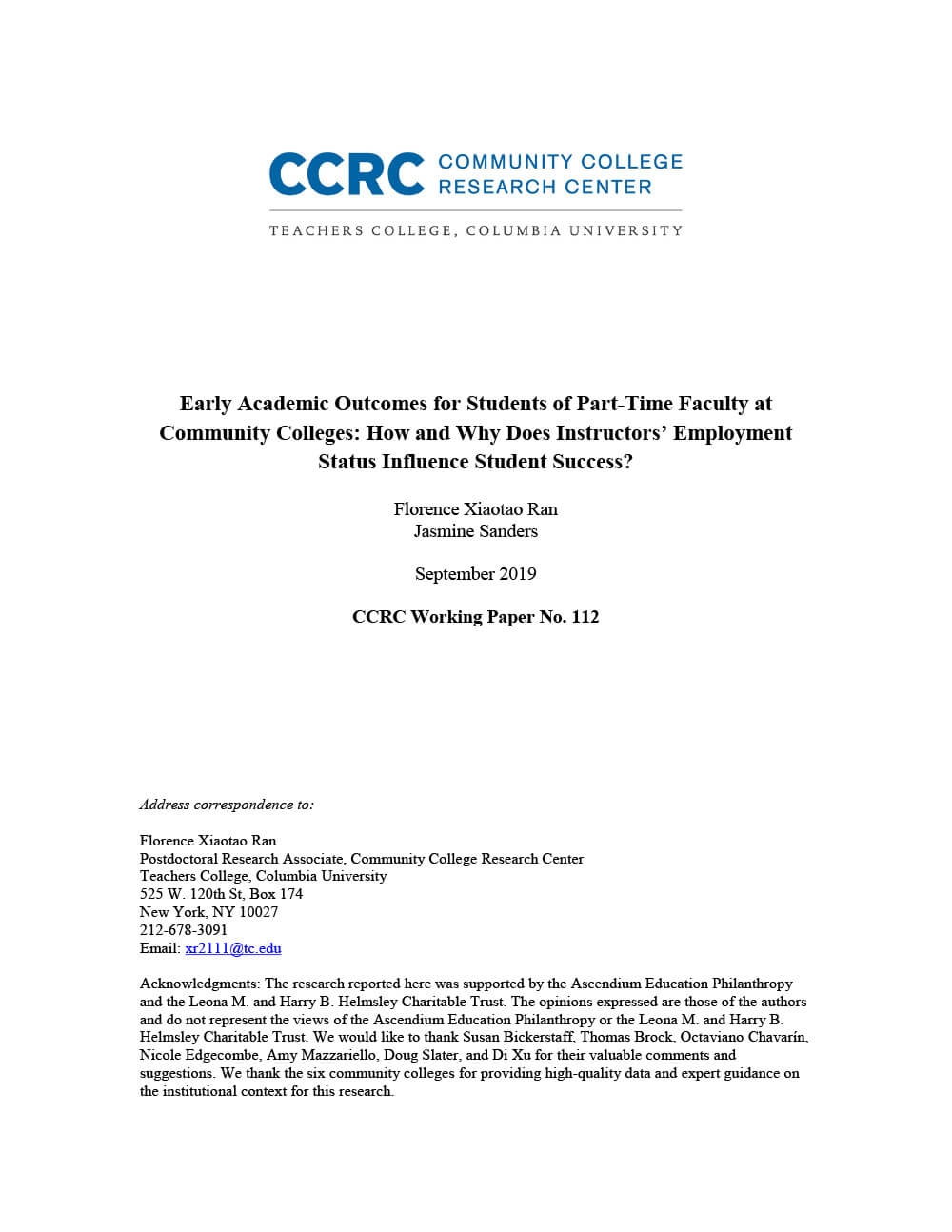
More than half of community college courses are taught by part-time faculty, and the reliance on part-time faculty to teach developmental education courses and gateway math and English courses is even more prevalent. Drawing on data from six community colleges, this study estimates the effects of part-time faculty versus full-time faculty on students’ current and subsequent course outcomes in developmental and gateway courses, using course fixed effects and propensity score matching to minimize bias arising from student self-sorting across and within courses.
While students with part-time instructors have better outcomes in their current course and similar pass rates in the next course in the sequence, they are 3 to 5 percentage points less likely to enroll in that subsequent course. The negative effects on subsequent enrollment are driven by results in math courses.
Notably, the estimated effects do not change substantially after controlling for instructors’ demographic characteristics and degree attainment, but the size of the estimated effects is reduced by up to 40% when the analytic model accounts for course scheduling. Results of a survey on faculty professional experiences at the six colleges in the study suggest that part-time faculty had less institutional knowledge than full-time faculty did about both academic and nonacademic services. Given that part-time faculty did not have negative effects on the pass rates of students who did enroll in subsequent courses, it appears more likely that inferior working conditions for part-time faculty, rather than inferior instructional practices, are driving the negative effects on students’ subsequent course enrollment.
A version of this paper appears in AERA Open under the title “Instruction Quality or Working Condition? The Effects of Part-Time Faculty on Student Academic Outcomes in Community College Introductory Courses.”
